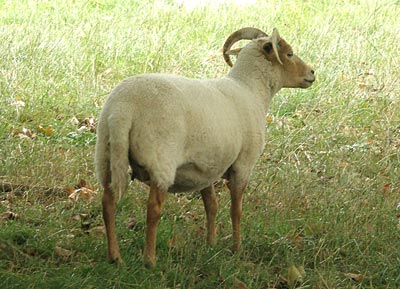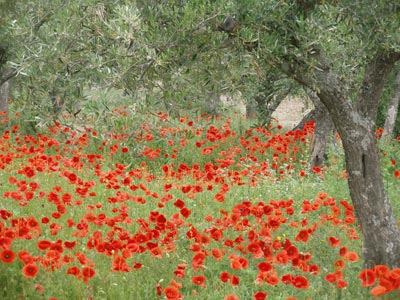
Portlands are a rare heathland breed of sheep originally from the South Dorset area in South West England. They are representative of the tan-faced group of breeds from the South West. They are small, square and with short, tan-coloured legs. The front legs and hind legs below the hock should be free from wool. The hooves should be uniformly dark, small and straight. The nose is dark. Some sheep carry a light covering of wool on the forehead but the rest of the face is free from wool. Horns are light coloured; those of the ram are heavily spiralled; in ewes they curve through a half circle. There is often a black line in one or both of the horns. Lambs are born with a foxy-red coat which changes in the first few months to a creamy white. The wool is close and fine with a short staple though some red kemp fibres may be found on the britch. The breed produces exceptionally high quality meat, with fine texture and excellent flavour, but achieves lambing percentages of only about 100%. The average weight of a mature ewe is around 40kg. More details can be found at the website below.
A variety of cabbage with smooth, large, blue-green leaves and a slightly bitter taste. It is the variety most commonly used in caldo verde.

Portugal occupies the western side of the Iberian Peninsula and is an Atlantic rather than a Mediterranean country. It has important fisheries and forests and is noted for the production of port wine which it exports along with sardines and cork from the cork oak. Most of the country enjoys a temperate climate with a moderately heavy rainfall. The Algarve in the extreme south has a sub-tropical climate with vegetation reminiscent of north Africa. Wheat, maize, beans vines and olives are grown in the valleys of the west of Portugal while the mountainous eastern part of the country produces more cork than anywhere else in the world. Resin from pines is also a significant export.